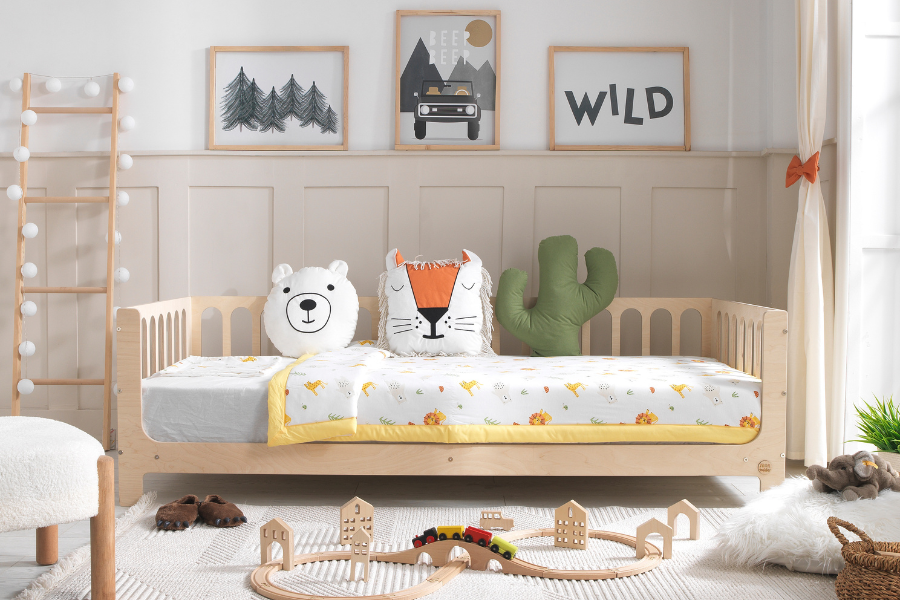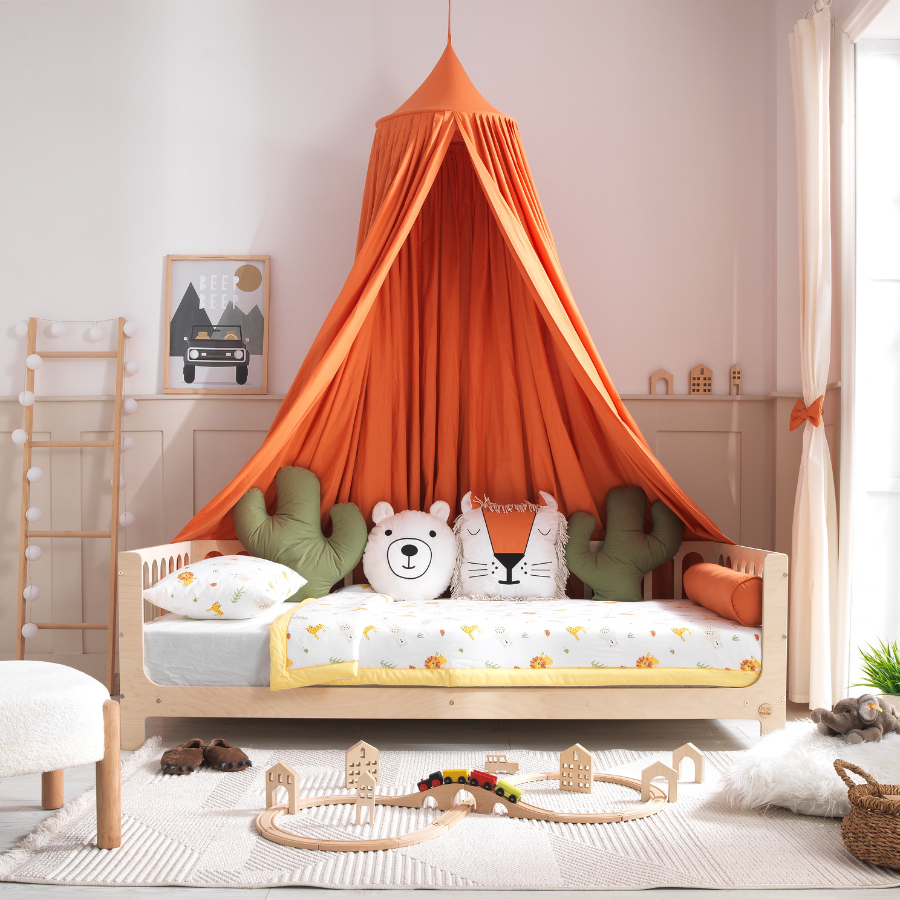Montoddler Review : Exploring Montoddler Through Parents’ Eyes
A Critical Look at Montessori for Toddlers
In the quest to equip children with the skills they need to tackle the challenges of the future, many parents and educators turn to proven educational philosophies. Among these, the Montessori method stands out for its focus on fostering independence, creativity, and critical thinking from a young age. This article explores how the Montessori philosophy can be adapted for home environments, providing children with a solid foundation for becoming effective problem solvers.
Montoddler Montessori Floor Beds
The Montoddler Floor Bed represents a pinnacle of thoughtfully designed toddler furniture, epitomizing the Montessori principles of independence and accessibility for the youngest of users. Unlike traditional cribs or toddler beds with confining sides, the floor bed is set directly on the ground, enabling toddlers to climb in and out of bed on their own. This autonomy not only fosters a sense of independence but also aligns with the natural development of a child’s motor skills. Crafted with safety and comfort in mind, the bed’s minimalist design is both aesthetically pleasing and functional, providing a safe sleeping environment that encourages exploration and freedom of movement.

Integrating the Montoddler Floor Bed into a child’s bedroom transforms the space into a conducive environment for both rest and active learning. The bed’s accessibility promotes a child’s engagement with their surroundings, allowing them to get up and explore their room as they wish, which is crucial for cognitive development and self-reliance. Parents have lauded the floor bed for not only its developmental benefits but also for its ease of assembly and adaptability to any room’s decor. The Montoddler Floor Bed stands out as an exemplary product that supports a child’s growth and independence while offering parents peace of mind through its thoughtful design and construction.
The Montessori Method and Philosophy
The Montessori method, developed by Dr. Maria Montessori in the early 20th century, emphasizes self-directed activity, hands-on learning, and collaborative play. In Montessori classrooms, children make creative choices in their learning, while the classroom and the teacher offer age-appropriate activities to guide the process. The philosophy is built on the belief that children are naturally eager for knowledge and capable of initiating learning in a supportive, thoughtfully prepared learning environment.

Adapting Montessori for the Home
Incorporating Montessori principles at home doesn’t require a complete overhaul of your living space or a significant investment in specialized materials. It starts with observing your child’s interests and providing them with activities that match their developmental stage. Simple changes, like organizing toys and materials on accessible shelves and creating a child-friendly space in every room, can encourage independence and self-directed learning.
Thoughtfully Designed Montessori Materials
Montessori materials are designed to be self-correcting and to isolate a specific skill or concept to be learned. At home, parents can select toys and activities that focus on practical life skills, sensory development, math, language, and cultural studies. These materials don’t have to be expensive; many can be found or made with everyday items, ensuring that learning is both accessible and tailored to the child’s natural curiosity.
Fostering Independence from Infancy
Montessori principles can be applied from infancy by encouraging exploration and movement. Creating a safe, accessible environment where infants can move freely and explore objects with different textures, shapes, and colors supports their natural desire to learn about the world around them. Simple activities, such as dressing, feeding, and cleaning up, can be adapted to allow even the youngest children to participate and develop independence.
Supporting Movement and Gross Motor Skills
The Montessori approach emphasizes the importance of movement in learning. For young children, this includes providing opportunities for walking, climbing, and other activities that develop gross motor skills. At home, this can be facilitated through outdoor play, obstacle courses, and games that encourage physical activity, all of which contribute to healthy development and problem-solving abilities.
Montessori for Multiple Age Groups
One of the unique aspects of Montessori education is its approach to mixed-age learning. At home, this can be implemented by encouraging older children to help younger siblings, fostering an environment of cooperation and mutual respect. This approach not only supports learning but also helps develop social skills and empathy among siblings.
Affordable Montessori for Families
Adopting Montessori principles at home does not have to be expensive. Many resources and communities offer DIY project ideas, second-hand Montessori materials, and free online content to help families integrate Montessori concepts affordably. The focus is on quality and purposefulness rather than quantity or brand.
Bringing Montessori Home
Bringing Montessori home means creating an environment that supports independence, curiosity, and a love for learning. It’s about observing your child and providing them with the tools and opportunities to explore the world at their own pace. Whether through specialized materials, everyday activities, or the way you organize your home, the essence of Montessori is in fostering a nurturing, respectful, and engaging environment where children can develop the critical thinking and problem-solving skills they will need for the future.
The Montessori method offers a time-tested approach to education that aligns with the needs of today’s children. By adapting these principles for home use, parents can provide a rich, supportive environment that nurtures future problem solvers ready to face the challenges of tomorrow with confidence and creativity.
Montoddler Contact Informations
Website: www.montoddler.com
Phone: (213) 616-7926
Address : 127 W 30th Street Floor 9 New York, NY 10001
